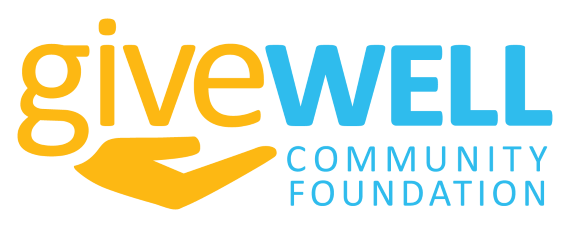Important reminders about bequests, legislative updates, and a look ahead to 2026.
Back to basics: Reminding clients about wills, trusts, and charitable bequests
August is national Make a Will Month, and the publicity surrounding this designation may prompt your clients to ask you about whether their affairs are in good order. Of course, making sure a client has established an estate plan and executed corresponding legal documents is a priority for any attorney, accountant, or financial advisor who practices in the field of estate planning, tax, or wealth management. Still, it’s always helpful to remind clients to keep their estate plans up to date and review their plans with you on a regular basis.
Despite the many cautionary tales resulting from the Covid-19 pandemic, most Americans do not have a will. Even those clients who do have estate plans in place may not truly understand the difference between a will and a trust (and the reason they still need a will even if they have a revocable living trust). A client also may not understand that a charitable bequest can be part of an estate plan whether the client’s main estate planning vehicle is a will or whether it is a trust.
Of the $485 billion given to charity by Americans in 2021, according to Giving USA, 9.5% of that giving came from bequests–that’s $46 billion! Giving USA’s data visualization tool illustrates the ebbs and flows of bequest giving, which has long been a significant component of philanthropy.
Research reveals fascinating psychological factors behind a person’s decision to leave a bequest in the first place, which helps to understand the motivation for leaving a gift to a charitable organization in a will or trust. Not surprisingly, altruism has long been one of those factors. Bequests to charity are not a new idea. Examples of high-profile estate gifts date back centuries. Some of your clients may be familiar with the bequests of Benjamin Franklin, who established testamentary charitable trusts dedicated to supporting Boston and Philadelphia tradesmen, and George Washington, who left bequests in his will to colleges and trade schools.
GiveWell Community Foundation’s professional staff welcomes the opportunity to work with your clients to establish bequests to your clients’ funds at the Community Foundation through a will or trust or through a beneficiary designation on a qualified retirement plan or life insurance policy, including providing you with proper bequest language to ensure alignment with your client’s intentions. Make a Will Month is also a good time to remind your clients that bequests of qualified retirement plans can be incredibly tax efficient. Funds flowing directly to a client’s fund at the Community Foundation from a retirement plan after the client’s death will not be subject to income tax or estate tax.
I look forward to working with you to establish your clients’ philanthropic legacies

Summer legislative updates–and looking ahead to sunsets
On August 16, 2022, President Biden signed into law the Inflation Reduction Act. A few tax provisions made it into the final legislation (e.g., a corporate minimum alternative tax). Other items were taken off the table at the last minute, most notably the proposed elimination of the carried interest tax break. Thanks to the Act’s inclusion of $80 billion in budget increases for the Internal Revenue Service, taxpayers and their advisors can likely expect greater scrutiny from the IRS on complex or aggressive transactions in the years ahead as the IRS beefs up its expertise and invests in its enforcement operations.
Philanthropic individuals and families and their advisors also continue to watch the status of SECURE 2.0 because of the enhancements it proposes to the rules for Qualified Charitable Distributions. SECURE 2.0 could pass through Congress by the end of the year.
While potential tax reform through budget reconciliation legislation may be top of mind for taxpayers and advisors, it’s also important to remember that the Tax Cuts and Jobs Act of 2018 (which seems like a long, long time ago!) included several changes to the tax rules for individuals that are set to expire after the close of the 2025 tax year. Unless those provisions are extended, the sunsets could impact tax planning for philanthropic families and individuals. For example, the standard deduction will decrease by nearly half, adjusted for inflation. This means some clients may once again itemize their deductions, thereby influencing charitable giving income tax strategies. In addition, the estate and gift tax exemption amount, increased under the Tax Cuts and Jobs Act, will be cut down so that in 2026 the exemption amount will be approximately $6.2 million adjusted for inflation. This will impact not only estates valued above the current exemption amount of $12.06 million but also estates valued in the $6 to $12 million range. Because assets transferred through lifetime gifts and bequests to charitable organizations are not subject to gift or estate tax, philanthropy may be an effective tax planning tool for even more taxpayers after 2025.
As your clients begin to set their philanthropic goals for the next several years, the philanthropic services staff at GiveWell Community Foundation is happy to help structure long-term strategies to maximize not only your clients’ tax benefits, but also the benefits to the community. Our professionals are deeply familiar with the short-term, mid-term, and long-term needs of our community, as well as the nonprofits that are working to address those needs. Our experienced staff works with you to help your clients support community needs now and in the future through clients’ donor-advised funds, field of interest funds, designated funds, and other vehicles established at the Community Foundation. We strive to align the interests of everyone involved: your client, the nonprofits your client wants to support to improve our community, and you in your trusted role as the client’s professional advisor

Ready to get started?
You know your clients. We know philanthropy. Together we can ensure your clients make the best decisions for making a difference in the community.

Lori Martini
Vice President/CPO
863-683-3131
lmartini@givecf.org
